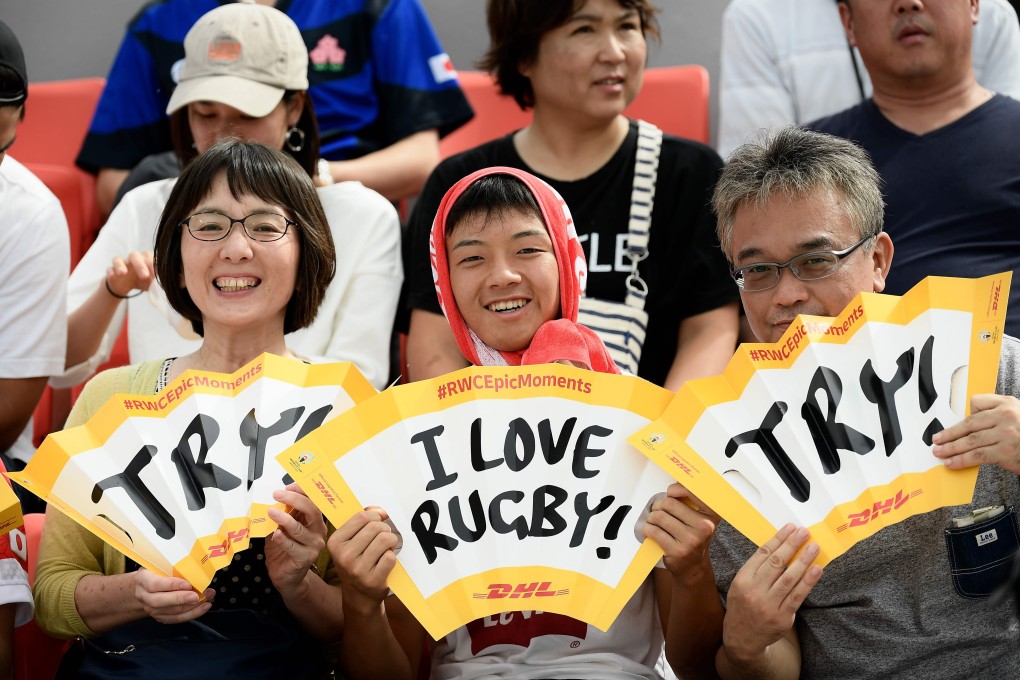Rugby World Cup 2019: it’s show time for Japan and World Rugby as they get set to crack the code
- Spotlight is on for a country and a sport that have expressed a desire to grow

Of all the storylines that may emerge during this six-week tournament, none will be more prevalent than the confluence of two very stubborn cultures. Few countries are as unyielding to new ideas and change as Japan and few sports have similarly resisted change and growth like 15-a-side rugby union.
“It’s not fair to call Japan a country or rugby a sport,” said Satoshi Takehana, a Japanese writer who has been based in London for the past 13 years. “Japan and rugby are actually both religions. The vast majority of Japanese are non-religious because we don’t need traditional religion. One of the principal tenets of religion is to make you behave, here is the Bible or whatever holy book. Read it, follow the rules and behave. But being Japanese itself is strong enough, the social values are like a religion – honour your family, be thankful, show respect, don’t cause trouble for others and shame on you if you steal. That is Japanese religion and it is similar to rugby, which is full of codes of conduct. Respect the referees, respect your opponent, train hard, learn the very complex rules of the game and don’t complain.”
However, being governed by an inherent and unshakeable code is often a recipe for stubbornness. They will more often than not listen only to their own counsel and while seemingly respectful, they are not necessarily inclusive. “Rugby is inclusive as long as you are one of us,” said Satoshi. It has been 32 years since the first World Cup, which is a decent enough sample size to draw the conclusion that 15-a-side rugby has had virtually no growth in that time.
The quarter-finalists of all eight tournaments have been virtually unchanged and rotated between New Zealand, England, Australia, South Africa (who were banned from the 1987 and 1991 event), France, Ireland, Wales, Scotland and Argentina. Fiji, Samoa and Canada all snuck in once or twice but that is it. Of course it’s natural for the cream to rise to the top, but where are the minnows who have swum upstream? There have been so many horrible mismatches in the opening pool rounds but, according to the authorities, this is necessary to make teams better. Well Canada has been in all nine events and with back-to-back games against behemoths New Zealand and South Africa has, once again, little chance to improve.